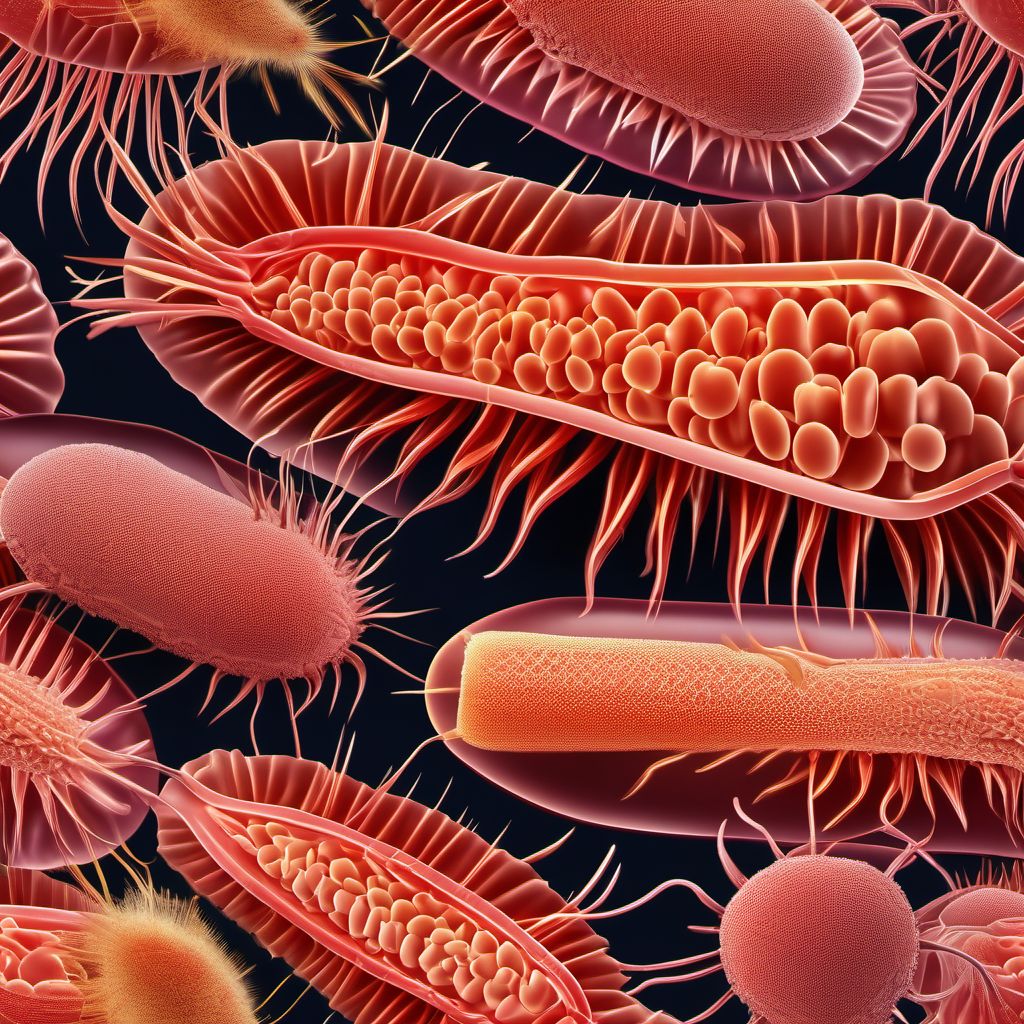
Other specified salmonella infections Save
ICD-10 code: A02.8
Chapter: Certain infectious and parasitic diseases
Other specified salmonella infections
Salmonella is a group of bacteria that can cause foodborne illnesses in humans. While most people are familiar with the common types of salmonella, such as Salmonella enteritidis or Salmonella typhimurium, there are many other types of salmonella that can cause infections in humans. These are known as other specified salmonella infections.
Other specified salmonella infections are caused by salmonella bacteria that are not classified as one of the common types. These bacteria can cause a range of symptoms, including diarrhea, fever, and abdominal cramps. The severity of the symptoms can vary depending on the type of salmonella bacteria involved and the individual's overall health.
Causes of other specified salmonella infections
Other specified salmonella infections can be caused by a variety of sources. The bacteria can be found in many types of food, including meat, eggs, and dairy products. Salmonella can also be found in contaminated water or soil, and it can be spread from person to person through contact with infected individuals or their bodily fluids.
Preventing other specified salmonella infections
- Cooking food thoroughly: One of the most effective ways to prevent salmonella infections is to cook food thoroughly. This means cooking meat, poultry, and eggs until they are well done, and avoiding raw or undercooked foods.
- Washing hands frequently: Salmonella can be spread from person to person, so it is important to wash your hands frequently, especially after using the bathroom, changing diapers, or handling animals.
- Keeping food properly refrigerated: Salmonella bacteria can grow quickly in warm temperatures, so it is important to keep food properly refrigerated. This means storing perishable foods like meat, poultry, and dairy products at temperatures below 40 degrees Fahrenheit.
- Avoiding cross-contamination: Salmonella can be spread from raw meat or poultry to other foods, so it is important to avoid cross-contamination. This means using separate cutting boards and utensils for raw and cooked foods, and washing your hands and surfaces thoroughly after handling raw meat or poultry.
Treatment of other specified salmonella infections
If you suspect that you have a salmonella infection, it is important to seek medical attention. While most cases of salmonella infections are mild and will resolve on their own, some cases can be more severe and may require medical treatment. Treatment may include antibiotics, rehydration therapy, and other supportive measures.
Overall, other specified salmonella infections can be prevented by taking simple steps to protect yourself and your family. By cooking food thoroughly, washing your hands frequently, and avoiding cross-contamination, you can reduce your risk of developing a salmonella infection.